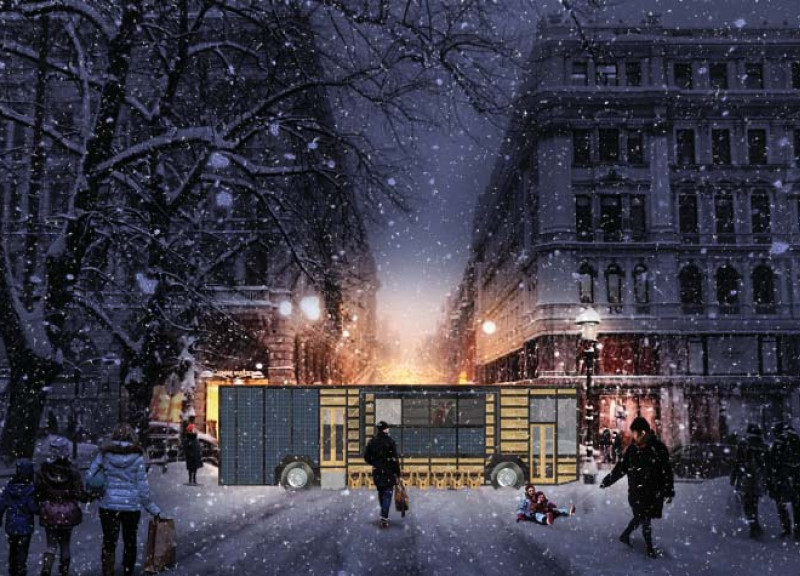5 key facts about this project
The Transcafè is a mobile coffee and gelato shop designed to adapt to different urban settings across Europe. It aims to strengthen social connections and provide a space for community interaction. The café combines practicality with a focus on sustainability, offering high-quality products while engaging with the public.
Design Concept
The Transcafè features a multi-functional design that allows for three configurations: fully closed, partially open, and fully open. In the fully closed state, it occupies a small footprint on busy sidewalks. This is convenient for customers who want to grab a drink quickly. The partially and fully open configurations create more seating options, inviting people to linger and interact while enjoying their refreshments in a welcoming atmosphere.
Energy Efficiency
Energy efficiency is a central theme in the design of the Transcafè. It is equipped with solar panels, making it capable of reducing dependence on external power sources. This design choice enables the café to operate independently. Seasonal energy use is carefully planned; in the summer, it focuses on cooling and preparing cold beverages, while in the winter, it adjusts to meet heating and hot water needs. This versatility allows the café to maintain consistent services throughout the year.
Structural Features
The café's insulated shell is one of its most important features. It helps regulate the internal climate, ensuring comfort regardless of outside temperatures. Alongside this insulation, multi-level seating and movable furniture provide flexibility for accommodating various customer groups. The pop-out design increases seating capacity, encouraging spontaneous gatherings and making the café feel lively and dynamic.
The Transcafè also includes folding doors that serve multiple purposes. When closed, they create a barrier for easy access. When opened, they allow light to flood the space, connecting the inside with the outside. This design element enriches the experience of the café, drawing in passersby and fostering an environment for conversation and community.



























